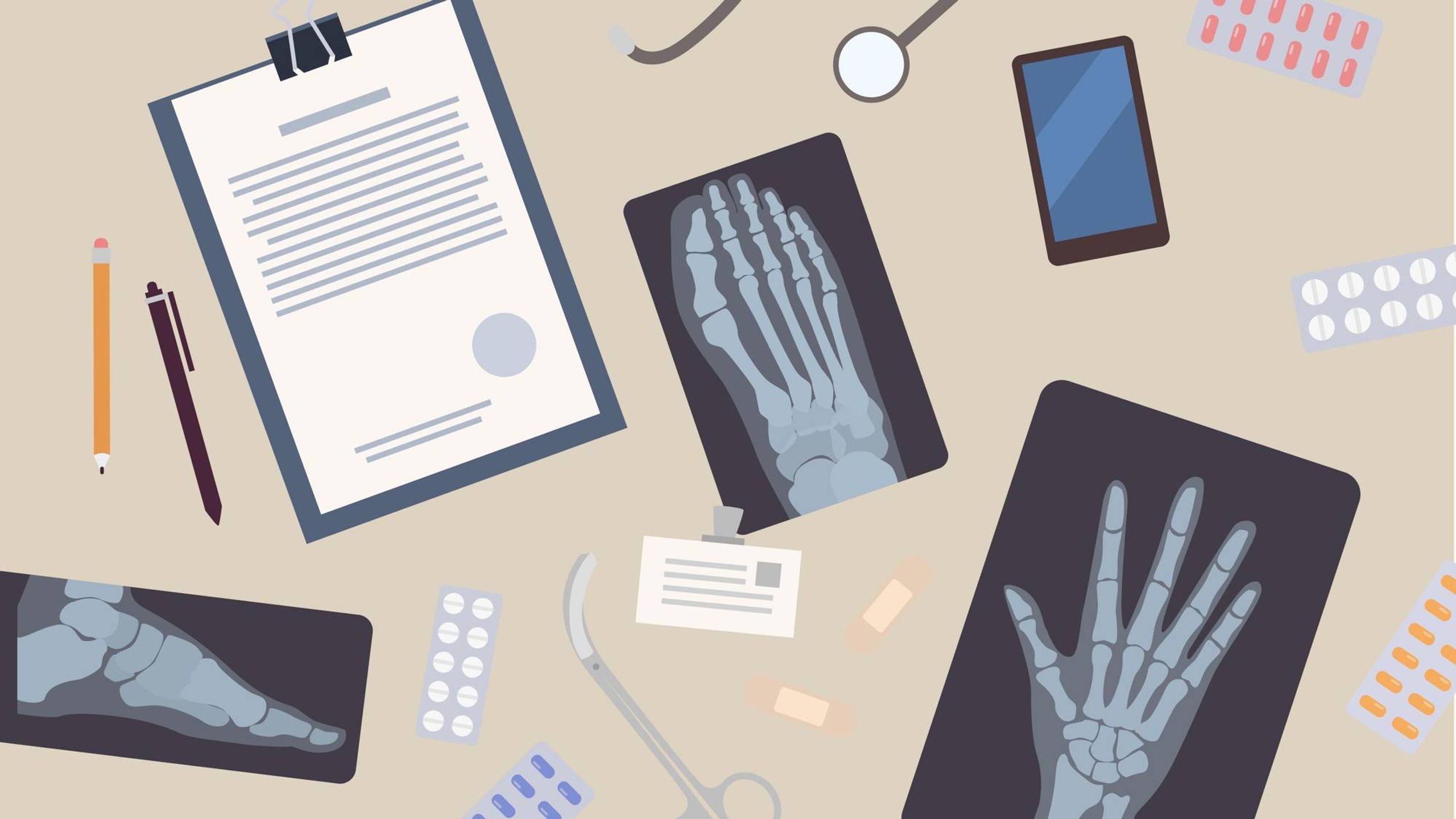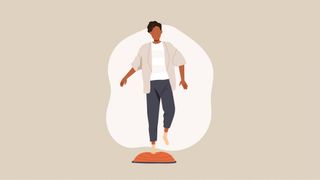Tips for Planning Orthopedic Surgery
If your doctor is recommending orthopedic surgery, here's what Next Avenue readers suggest to plan ahead and improve your post-op recovery

If you or a loved one is planning for orthopedic surgery (orthopedics is concerned with the musculoskeletal system), there are things you can do up front that may make recuperating a little less stressful and certainly more comfortable.
From exercising, procuring items and finding resources to support you, here is sage advice from Next Avenue Facebook readers and health care providers to help you go into the unknown with eyes wide open.
"Get detailed information for post-op and get more help than you think you will need."
"The main thing in joint replacement is to be prepared and understand what to expect," says reader Carol Stroski McManemy.
"Get your house in order before you go in and 'work ahead,' because you won't be able to take care of the regular duties for a while," says Maria O'Neill. Another suggestion she shared, "keep your cell phone on you at all times."
"Be ready to work hard and have it take a bit longer to heal (then if it doesn't you will be pleasantly surprised)," offered Lisa D. Meyer.
Other suggestions include:
Find a Trusted Surgeon
Finding a surgeon you like may take several attempts — first, ask a family member or trusted friend for recommendations. Looking online is another great option but be sure to search for doctors in your area with high ratings and verified reviews. Or you can ask your primary care physician to select the right person for you.
Also, take time to review "What Questions Should I Ask My Doctor Before Orthopedic Surgery," and add any others that are important to you before you meet with a surgeon.
Prehabilitate
For several orthopedic surgeries, prehabilitation, or getting prepared physically ahead of, is often recommended.
"Your physical therapist can help you prepare for and recover from surgery with an individual treatment program to get you moving again in the safest and most effective way possible," says Dr. Scott McAfee, a doctor of physical therapy at MovementX in Washington, D.C.
Get Organized
Taking care of yourself starts before surgery, and one way to relieve stress is to be organized. Here's a to-do list to provide some peace of mind:
- Make an appointment with your physical therapist
- Obtain a prescription for pain medication ahead of surgery
- Apply for a handicapped sticker, if applicable
- Stock your fridge and freezer with pre-made meals, including easy-to-eat foods that do not require cutting
- Designate a recuperating area on the main level, if possible. (Check with your physician regarding going up or down stairs.)
- Claim a place to keep your phone, remotes or other items within reach
- Remove tripping hazards and safety-proof your home: discard or tape-down area rugs, install nightlights in your hallway, clear clutter to move around freely without obstruction
- Place your medical history and information, including key contacts, in a visible place in your home
- Set up a work-from-home office, if required
Buy Ahead
Listed below are items to consider securing before you head to the hospital. Since each operation is unique, review these suggestions with your physician or physical therapist to determine the appropriateness and what other items may be necessary post-surgery.
- Ice Therapy Machine (or a bag of frozen veggies!): Cold therapy utilizes cold and compression to reduce swelling and improve pain control. You can find these made-for-home machines on retailer sites online or at medical supply stores.
- Bedside Commode: A portable toilet may be helpful, especially in the middle of the night, if needed.
- Raised Toilet Seat: Bringing you closer to the seat, with or without arms, may make the transfer more manageable for you when necessary.
- Wedge Pillow (or extra pillows): It's an extra support in keeping your leg elevated or a place to rest your arm.
- Non-skid Bathmats: Get them both for the bathroom floor and tub/shower.
- Shower Chair: Whether to reduce the risk of a fall or to assist in bathing alone, this is an essential item you just might decide to keep after healing.
- Waterproof Cast Cover: It's a waterproof sleeve that goes over your cast to protect it from water or moisture from reaching your incisions or stitches.
- Walking Aids: Confirm which device(s) you will need post-operatively: wheelchair, crutches, knee scooter, walking boot, walker or cane, or if you may need some or all of them throughout the recuperating period.
- Zip Ties: Fasten a basket, bag, lunch bag, backpack or carpenter’s tool belt to your walking device and store your phone, book, food or other essentials nearby.
Line Up Care
"I am a retired physician, and I didn't know what recovery would be like," says Dr. Marsha Wallace, a retired doctor of internal medicine in Alexandria, Va. Wallace underwent surgery at 65 after breaking her wrist on an evening stroll with her dog. Her advice: "Get detailed information for post-op and get more help than you think you will need. You can always send them home."
You may also want to find help for your pets; you may not be up to feeding or walking them post-op.
Not knowing where to turn, Wallace reached out to a community network she was already a member of for general household help.
The well-known phrase, "it takes a village," is at the heart of the volunteer-run organization, "Village to Village Network" (VtV), which began in Beacon Hill, Mass., nearly 20-years ago.
"Our goal is to give back to the community," said Barbara Sullivan, executive director of VtV. With programs in 44 states and four countries, neighbors serve neighbors with various services including help with cooking, cleaning and most notably, reliable transportation.
"Our services are for anyone who needs assistance, not just older adults. We offer a great resource when you can't depend on Uber," Sullivan said.
If you live independently or even with someone, a professional caregiver may be necessary after surgery. Having a trusted person to help manage medications, get you up and down or change bandages is going to be a welcome relief. But, most importantly, this person can keep an eye out for any changes in your condition, including worsening pain, swelling, signs of infection or other complications.
To locate support, contact churches, synagogues, in-home care providers or other volunteer organizations in your area.
One organization that provides an in-home continuum of care is Interim Healthcare.
"We offer what we call 'patient-centered care,'" said Jane Hinton, its chief clinical officer. "We look at the mind, body, spirit and family." The company can be found in nearly all 50 states (and one location in Saudi Arabia) and will conduct a free in-home assessment for those looking for care.
You may also want to find help for your pets; you may not be up to feeding or walking them post-op. Also, beware animals who can pose a tripping hazard or run into your wound while you are healing.
To locate support, contact churches, synagogues, in-home care providers or other volunteer organizations in your area. For mental health resources, finding others who have endured the same journey can be incredibly helpful as you make your way through yours.
In addition to family, friends or groups through your clinician, there are public and private Facebook support groups for nearly every injury possible where you can join to meet others and ask questions.
Rest and Relax
Finally, and easier said than done, now is a good time to practice breathing and meditation exercises, since they can mentally prepare you for the road ahead.

You Are Reading
Tips for Planning Orthopedic Surgery
If your doctor is recommending orthopedic surgery, here's what Next Avenue readers suggest to plan ahead and improve your post-op recovery






